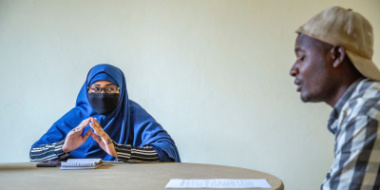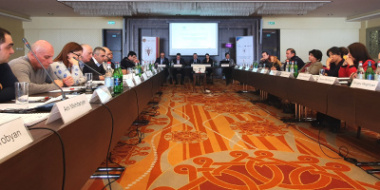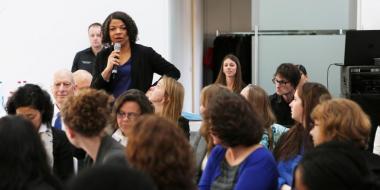Supporting the return, reintegration and protection of Somali IDPs and refugees
Somalia constitutes a country of origin, destination, transit, and return for large movements of people across the Horn of Africa. Movement is driven by the intersecting challenges of protracted and persistent conflict, failing systems of governance, and limited employment and livelihood opportunities. More than 2.1 million Somalis live in protracted displacement, with 1.1 million internally displaced persons (IDPs) and an additional 1 million Somalis hosted as refugees in countries in the immediate region.









